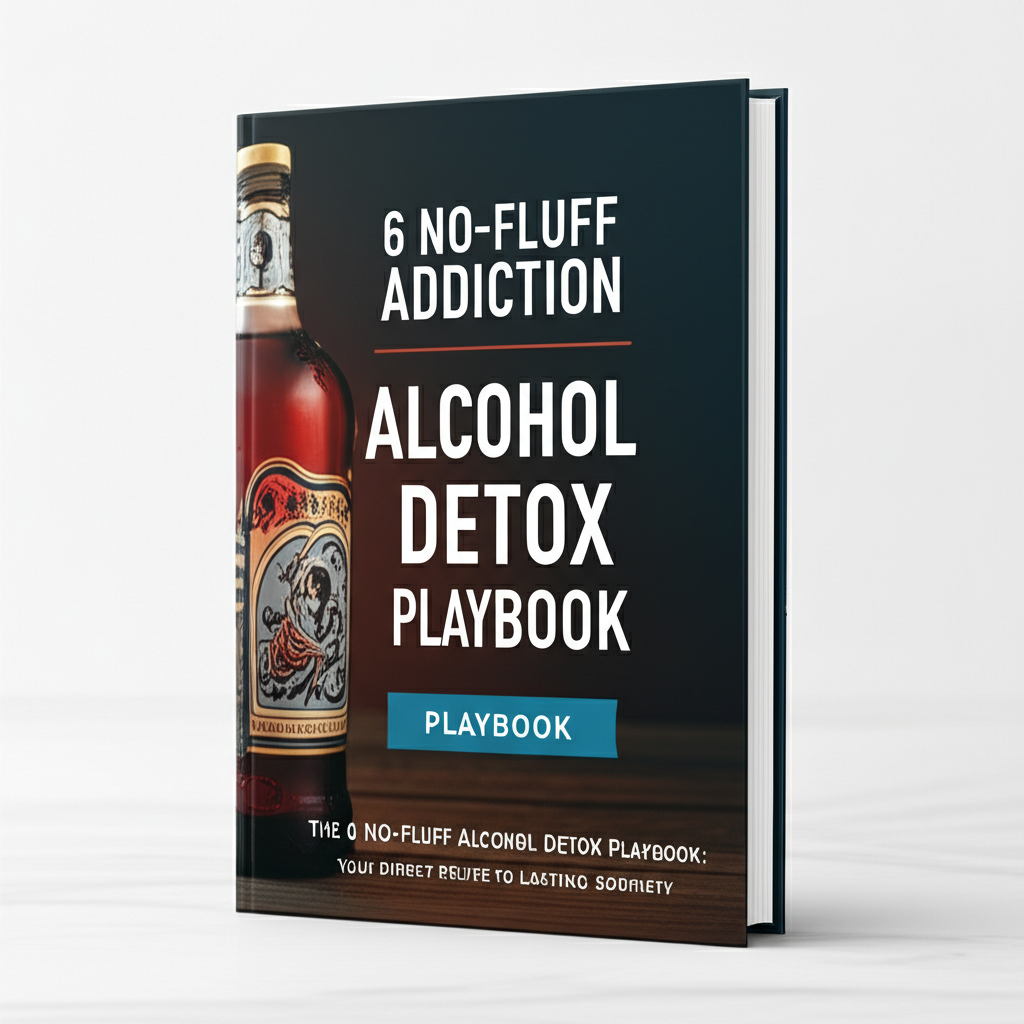The decision to stop drinking is a monumental step, a courageous leap towards reclaiming your health, your relationships, and your future. For many, however, the path to sobriety is fraught with fear and uncertainty, particularly when it comes to the process of alcohol detox. Alcohol withdrawal can be dangerous, even life-threatening, making professional guidance not just advisable, but essential.
This comprehensive guide is designed to demystify alcohol detox, providing you with three actionable pathways to safely navigate this critical phase. We’ll break down the complexities, offer clear explanations, and empower you with the knowledge to make informed decisions on your journey to lasting recovery. Remember, while this article offers valuable insights, it is not a substitute for professional medical advice. Always consult with a doctor or addiction specialist before attempting any form of alcohol detox.
Understanding Alcohol Withdrawal: The First Step to Safety
Before diving into the actionable guides, it’s crucial to understand why alcohol detox requires careful consideration and, often, medical supervision. Alcohol is a central nervous system depressant. When someone who is physically dependent on alcohol suddenly stops or significantly reduces their intake, their brain, which has adapted to the constant presence of alcohol, goes into overdrive. This "rebound excitability" leads to withdrawal symptoms.
Why Alcohol Detox Can Be Dangerous
The severity of withdrawal symptoms varies greatly depending on the individual’s level of alcohol dependence, drinking history, overall health, and any co-occurring conditions. For some, symptoms might be mild and uncomfortable; for others, they can escalate rapidly into a medical emergency.
The primary dangers include:
- Seizures: Alcohol withdrawal seizures can occur within 6 to 48 hours after the last drink and can be generalized tonic-clonic (grand mal) seizures, posing a risk of injury or aspiration.
- Delirium Tremens (DTs): This severe form of withdrawal typically appears 48 to 96 hours after the last drink and is characterized by confusion, disorientation, hallucinations (visual, auditory, or tactile), severe agitation, rapid heart rate, high blood pressure, and profuse sweating. DTs are a medical emergency with a significant mortality rate if left untreated.
- Cardiovascular Complications: Increased heart rate and blood pressure during withdrawal can strain the heart, especially in individuals with pre-existing heart conditions.
- Dehydration and Electrolyte Imbalance: Vomiting, diarrhea, and sweating can lead to severe dehydration and critical electrolyte imbalances, further complicating the body’s recovery.
Common Alcohol Withdrawal Symptoms
Symptoms can range from mild to severe and typically begin within 6-12 hours after the last drink, peaking within 24-72 hours, though some symptoms can persist for weeks.
Mild to Moderate Symptoms (usually within 6-24 hours):
- Anxiety and nervousness
- Tremors (shaking hands, often called "the shakes")
- Nausea and vomiting
- Headache
- Insomnia
- Sweating
- Increased heart rate and blood pressure
- Irritability and agitation
Severe Symptoms (can develop within 12-96 hours):
- Hallucinations (auditory, visual, tactile – feeling things crawling on the skin)
- Seizures
- Delirium Tremens (DTs), including:
- Profound confusion and disorientation
- Extreme agitation
- Fever
- Severe tremors
- Paranoia
When NOT to Attempt Home Detox Alone
It cannot be stressed enough: if you experience or have a history of any of the following, attempting to detox at home without medical supervision is extremely dangerous and should be avoided at all costs:
- History of severe alcohol withdrawal symptoms (seizures, DTs, hallucinations).
- Drinking heavily for an extended period (e.g., daily heavy drinking for months or years).
- Co-occurring medical conditions (heart disease, liver disease, diabetes, etc.).
- Co-occurring mental health disorders (severe anxiety, depression, bipolar disorder, psychosis).
- Using other substances in addition to alcohol.
- Lack of a strong, reliable support system at home.
In these situations, professional medical detox is not just recommended, but vital for your safety.
Guide 1: The Medically Supervised Outpatient Detox
For individuals with moderate alcohol dependence and a stable, supportive home environment, outpatient detox offers a structured, medically supervised pathway to sobriety without requiring an overnight stay at a facility.
What is Outpatient Detox?
Outpatient detox involves regular visits to a clinic or doctor’s office for medical monitoring, medication management, and support, while the individual continues to live at home. This approach allows for continued engagement with daily responsibilities like work or family, making it a less disruptive option for many.
Who is it For?
Outpatient detox is generally suitable for individuals who:
- Have a moderate level of alcohol dependence (not severe).
- Have not experienced severe withdrawal symptoms (seizures, DTs) in the past.
- Are in good overall physical health with no major co-occurring medical conditions that would complicate detox.
- Have a safe, stable, and supportive home environment free from alcohol and triggers.
- Have reliable transportation to attend appointments regularly.
- Are highly motivated and committed to the detox process.
The Process: What to Expect
- Initial Medical Assessment: A comprehensive evaluation by a doctor or addiction specialist will determine your suitability for outpatient detox. This includes reviewing your medical history, drinking patterns, physical exam, and possibly blood tests.
- Personalized Treatment Plan: Based on the assessment, a tailored plan will be developed. This plan outlines the specific medications, frequency of appointments, and any additional support services.
- Medication Management: Medications are a cornerstone of safe outpatient detox.
- Benzodiazepines (e.g., Librium, Valium, Ativan): These are commonly prescribed to reduce anxiety, prevent seizures, and alleviate other withdrawal symptoms by calming the central nervous system. They are typically prescribed for a short duration and tapered down gradually.
- Other Medications: Depending on individual needs, other medications might be used to address specific symptoms like nausea, insomnia, or cravings (e.g., naltrexone, acamprosate, disulfiram – though these are often introduced after detox).
- Regular Check-ins: You will have scheduled appointments (daily or every few days initially) for medical monitoring. This allows healthcare professionals to track your symptoms, adjust medication dosages, and address any emerging concerns.
- Counseling and Support: Outpatient programs often integrate individual or group counseling sessions to address the psychological aspects of addiction and prepare for long-term recovery.
Advantages and Considerations
Advantages:
- Comfort and Familiarity: Detox in your own home environment.
- Flexibility: Allows you to maintain work, school, or family commitments.
- Cost-Effective: Generally less expensive than inpatient options.
- Privacy: More discreet for those concerned about their privacy.
Considerations:
- Self-Discipline Required: You must adhere strictly to medication schedules and avoid alcohol.
- Environmental Triggers: The home environment can present temptations and triggers.
- Limited Supervision: While medically monitored, you are not under constant observation, which could be risky if severe symptoms develop unexpectedly.
- Not for Everyone: Unsuitable for severe dependence or high-risk individuals.
Guide 2: The Intensive Inpatient Detox & Residential Treatment
For individuals with severe alcohol dependence, a history of complicated withdrawals, co-occurring mental health issues, or an unstable home environment, inpatient detox offers the safest and most structured pathway to sobriety.
What is Inpatient Detox?
Inpatient detox takes place in a specialized medical facility or a dedicated detox center, where individuals reside 24/7 under constant medical supervision. This provides a safe, controlled environment where withdrawal symptoms can be managed effectively and immediately.
Who Benefits Most?
Inpatient detox is highly recommended for individuals who:
- Have severe alcohol dependence (drinking heavily for a long time, high tolerance).
- Have a history of severe withdrawal symptoms (seizures, DTs, hallucinations).
- Have co-occurring medical conditions (heart, liver, kidney issues) that require close monitoring.
- Are diagnosed with co-occurring mental health disorders (severe depression, anxiety, bipolar, psychosis).
- Have an unstable or unsupportive home environment where sobriety would be difficult to maintain.
- Are using multiple substances in addition to alcohol.
- Have previously attempted outpatient detox unsuccessfully.
A Day in the Life: Structure and Support
Upon admission, a comprehensive medical and psychological assessment is conducted. The inpatient detox process typically involves:
- 24/7 Medical Monitoring: Nurses and doctors are on-site around the clock to monitor vital signs, assess withdrawal symptoms, and administer medications. This immediate response capability is crucial for managing potentially life-threatening complications.
- Medication-Assisted Treatment (MAT): Similar to outpatient detox, benzodiazepines are often used to alleviate withdrawal symptoms and prevent seizures. The dosage is carefully managed and adjusted as symptoms subside. Other medications may be used to address specific needs, such as anti-nausea drugs or sleep aids.
- Nutritional Support: Many individuals entering detox are malnourished. Inpatient facilities provide regular, balanced meals and hydration to support physical recovery.
- Therapeutic Interventions: Beyond medical stabilization, inpatient programs often begin the therapeutic process. This can include:
- Individual Counseling: One-on-one sessions to explore the root causes of addiction and develop coping strategies.
- Group Therapy: Peer support and shared experiences, helping individuals feel less alone and learn from others.
- Educational Sessions: Learning about the disease of addiction, triggers, and relapse prevention.
- Aftercare Planning: A critical component of inpatient treatment is developing a comprehensive aftercare plan. This ensures a smooth transition to ongoing treatment, such as residential rehabilitation, intensive outpatient programs (IOP), or regular therapy and support groups.
Benefits and Long-Term Impact
Benefits:
- Maximum Safety: Constant medical supervision minimizes the risks of severe withdrawal complications.
- Structured Environment: A controlled, alcohol-free setting removes access to alcohol and triggers.
- Comprehensive Care: Addresses both physical and psychological aspects of addiction from the outset.
- Foundation for Recovery: Provides a stable base from which to launch into long-term treatment.
- Peer Support: Living alongside others in recovery fosters a sense of community and shared purpose.
Long-Term Impact: Inpatient detox provides a crucial first step, stabilizing the body and mind. The therapeutic components introduced during this phase lay the groundwork for deeper healing and sustained sobriety, significantly increasing the chances of long-term recovery when followed by continued treatment.
Guide 3: The Critical First Action – Seeking Immediate Professional Guidance
While the previous two guides outline different types of medically supervised detox, this third guide emphasizes the most critical actionable step for anyone considering quitting alcohol: reaching out for professional help immediately. Many people feel ashamed, confused, or unsure where to start. This guide is about overcoming those barriers and taking that vital first action.
Why Professional Consultation is Non-Negotiable
Even if you believe your alcohol dependence is mild, a professional medical evaluation is paramount. Here’s why:
- Accurate Assessment: Only a doctor or addiction specialist can accurately assess your level of dependence, your risk for severe withdrawal, and any underlying health conditions that could complicate detox. What feels "mild" to you could be dangerous.
- Personalized Plan: They can recommend the safest and most effective detox strategy tailored to your unique needs – whether it’s outpatient, inpatient, or another approach.
- Medication Access: Safe detox often involves prescription medications that alleviate symptoms and prevent complications. These are only available through a medical professional.
- Emotional Support and Guidance: Navigating the emotional turmoil of addiction and withdrawal is challenging. Professionals offer empathetic support and guidance throughout the process.
- Link to Long-Term Recovery: The initial consultation is often the gateway to a continuum of care, connecting you with therapy, support groups, and ongoing treatment vital for sustained sobriety.
What to Expect During Your First Consultation
Don’t fear this initial step. It’s an opportunity to get help, not judgment.
- Honest Discussion: Be prepared to discuss your drinking habits, how much and how often you drink, when your last drink was, and any previous attempts to quit. Honesty is key for an accurate assessment.
- Medical History Review: Provide details about your general health, medications you take, and any past medical or mental health issues.
- Physical Exam: A doctor will perform a physical exam and may order blood tests to check your liver function, electrolyte levels, and overall health.
- Withdrawal Symptom Assessment: You’ll be asked about any withdrawal symptoms you’ve experienced or are currently experiencing.
- Treatment Recommendations: Based on all this information, the professional will recommend the safest and most appropriate detox plan for you. This might involve referring you to a specialized detox facility, an outpatient program, or providing a prescription for home detox under strict medical supervision.
Overcoming Barriers to Seeking Help
It’s common to face internal and external barriers when seeking help for alcohol addiction.
- Stigma and Shame: Many feel embarrassed or ashamed. Remember, addiction is a disease, not a moral failing. Seeking help is a sign of strength.
- Fear of Judgment: Healthcare professionals are trained to help, not judge. Their priority is your health and safety.
- Cost Concerns: Inquire about insurance coverage, sliding scale fees, or state-funded programs. Don’t let cost be a barrier to life-saving treatment.
- Logistical Challenges: If transportation or childcare is an issue, discuss this with the provider. Many programs offer solutions or referrals.
- Denial: It’s common to minimize the problem. If you’re reading this, a part of you knows help is needed. Listen to that voice.
Actionable Steps:
- Call Your Primary Care Physician: They are often the first and most trusted point of contact.
- Contact an Addiction Hotline: Organizations like the Substance Abuse and Mental Health Services Administration (SAMHSA) National Helpline (1-800-662-HELP) can provide confidential information and referrals.
- Search Online for Local Treatment Centers: Use keywords like "alcohol detox near me" or "addiction treatment centers ."
- Talk to a Trusted Friend or Family Member: Let someone know you’re seeking help; they can offer support and practical assistance.
Beyond Detox: Building a Foundation for Lasting Sobriety
Detox is merely the first, albeit critical, step on the road to recovery. It addresses the physical dependence, but true sobriety requires addressing the underlying psychological and behavioral aspects of addiction. Without ongoing treatment and support, the risk of relapse is extremely high.
Therapy and Counseling
Therapy helps individuals understand their addiction, develop coping mechanisms, and address co-occurring mental health issues.
- Cognitive Behavioral Therapy (CBT): Helps identify and change negative thought patterns and behaviors that contribute to alcohol use.
- Dialectical Behavior Therapy (DBT): Focuses on emotional regulation, distress tolerance, and interpersonal effectiveness.
- Motivational Interviewing (MI): Helps individuals explore and resolve ambivalence about changing their behavior.
- Family Therapy: Involves family members in the recovery process, addressing communication issues and building a supportive home environment.
Support Groups
Peer support is invaluable in recovery, offering a sense of community and shared understanding.
- Alcoholics Anonymous (AA): A widely recognized 12-step program providing mutual support.
- SMART Recovery: A science-based program that teaches self-empowerment and self-reliance using cognitive behavioral and rational emotive behavior therapy techniques.
- Refuge Recovery: A Buddhist-inspired approach to addiction recovery.
- Women for Sobriety (WFS): A self-help program specifically for women.
Holistic Approaches
Integrating mind-body practices can enhance overall well-being and support long-term recovery.
- Mindfulness and Meditation: Reduces stress, improves self-awareness, and helps manage cravings.
- Exercise: Boosts mood, reduces anxiety, and improves physical health.
- Nutritional Support: A balanced diet supports brain health and physical recovery.
- Creative Therapies: Art, music, or writing can provide healthy outlets for expression and emotional processing.
Relapse Prevention Strategies
Developing a robust relapse prevention plan is essential.
- Identify Triggers: Understand what situations, emotions, or people might tempt you to drink.
- Develop Coping Mechanisms: Learn healthy ways to deal with stress, cravings, and difficult emotions without resorting to alcohol.
- Build a Strong Support System: Surround yourself with sober friends, family, and support group members.
- Regular Therapy/Support Group Attendance: Consistent engagement keeps you accountable and provides ongoing tools.
- Healthy Lifestyle: Prioritize sleep, nutrition, exercise, and stress management.
Taking the First Step: Resources and Next Actions
The journey to sobriety begins with a single, brave step. If you or a loved one is struggling with alcohol addiction, reaching out for help is the most important action you can take.
How to Find Help
- Your Primary Care Doctor: They can provide an initial assessment and refer you to specialists.
- SAMHSA National Helpline: Call 1-800-662-HELP (4357) for confidential free help, from public health agencies, to find substance use treatment and information.
- Online Directories: Websites like Psychology Today, SAMHSA’s Treatment Locator, or the National Association of Addiction Treatment Providers (NAATP) can help you find local resources.
- Local Hospitals: Many hospitals have addiction services or can direct you to appropriate care.
- Employee Assistance Programs (EAP): If available through your employer, EAPs can offer confidential counseling and referrals.
What to Ask When Seeking Help
When you contact a potential provider or facility, don’t hesitate to ask questions:
- What types of detox programs do you offer (outpatient, inpatient)?
- What is your approach to medication-assisted treatment?
- What credentials do your staff hold?
- What is the typical duration of your detox program?
- What kind of therapy and counseling are integrated?
- What is the cost, and do you accept my insurance?
- What aftercare planning and support do you provide?
Conclusion: Your Path to a Brighter Future
Embarking on alcohol detox is a profound decision, signaling a desire for a healthier, more fulfilling life. We’ve explored three crucial actionable guides: the flexibility of medically supervised outpatient detox, the safety and structure of intensive inpatient detox, and the paramount importance of seeking immediate professional guidance as your very first action. Each path, chosen with expert consultation, leads to the same destination: a body free from alcohol’s grasp and a mind ready for the journey of recovery.
Remember, you are not alone in this fight. Millions have walked this path before you and found lasting sobriety. While detox addresses the physical dependence, true healing encompasses the mind, body, and spirit, requiring ongoing commitment to therapy, support groups, and a healthy lifestyle. Take that courageous first step today – reach out to a professional. Your future self will thank you for it. The journey may be challenging, but the destination of a life free from addiction is undeniably worth it.








